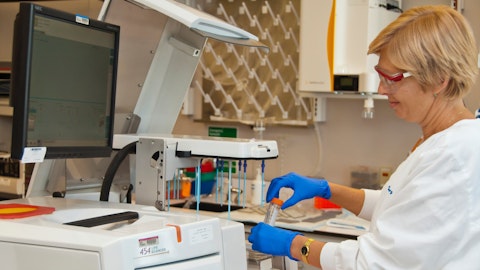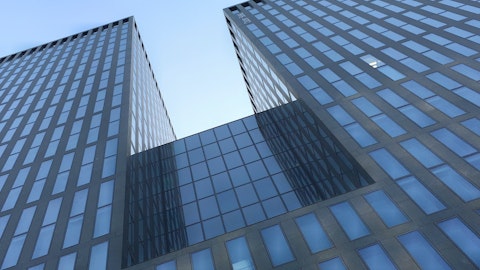In this piece, we will take a look at the ten best Japanese stocks to invest in 2023. If you want to skip our introduction to Japan, then check out 5 Best Japanese Stocks To Invest in 2023.
Japan is one of the most technologically advanced nations in the world and also one of the biggest economies. By 2022 end, Japan had a GDP of $4.2 trillion, which was the largest after the United States and China in nominal terms. Japan enjoys technological advancements in some of the most complex industries in the world, and it is one of the few countries in the world that is capable of manufacturing its own semiconductors and conducting its own rocket launches. At the same time, Japanese astronauts regularly fly to the International Space Station (ISS), and it is the first country in the world to have successfully landed a probe on a distant asteroid and beamed back some stunning photographs.
Japan’s economic history is also rather unconventional when we consider some other fast growing Asian economies. The country was destroyed after the second world war, with its manufacturing and industrial bases significantly damaged by the Allies and the Japanese government which had diverted resources away from non wartime industries such as textiles. After the war, Japan entered into a rapid period of growth which was helped by American involvement as the United States was eager to expand its global influence in order to counter the Soviet Union. Japan’s rapid economic growth is also attributed to the deplorable state of its post war economy, as the harder you fall, the faster you rise when it comes to percentage growth. This growth was fueled by prudent government policies that stimulated primary industries and then introduced policies to encourage consumption and economic growth.
However, as is always the risk with rapid economic growth, Japan also experienced an asset bubble in the 1980s which was due to easy capital available through bank loans. Just like sub-prime mortgage loans were one of the reasons behind the U.S. financial market meltdown in 2008, bad loans made by Japanese banks caused asset prices to enter the bubble territory, and the house of cards came tumbling down at the turn of the decade in 1989 when the Bank of Japan decided to rapidly raise interbank lending rates to control borrowing. The sharp rise in interest rates crashed the stock market, and Japanese firms, whose balance sheets were beefed up by assets, also saw trouble as the price bubble burst. The cumulative effects of a lax monetary policy coupled with a sudden tightening made Japan lose twenty years of economic growth, as its GDP had grown by 2.6% in 2017 over its levels in 1997.
Fast forwarding to the current day, Japan has some of the most interesting economic policies that you’re likely to come across in the developed world. Owning to its historic economic crisis, the Bank of Japan actually wants inflation to go up as it spurs economic activity. To achieve this, it rapidly buys bonds to ensure yields stay depressed and inflation increases. This sees it set limits for the yields of short and long term bonds, with the aim to provide financial institutions with stable long term investments and reduce the broader debt costs for firms. The Bank of Japan’s yield curve control (YCC) policy sees it maintain a -0.1% yield for short term bonds and 0% for the long term bonds.
So naturally, when inflation in Japan exceeds its targets, there is speculation in the market that the Bank of Japan might end up tweaking its famous yield curve. On the inflationary front, sources quoted by Reuters claim that the Bank of Japan is expected to forecast inflation to sit at 3% by March 2024, for a fifty basis point upgrade over the current forecast of 2.5%. Should the inflation forecasts rise, then the Bank of Japan will be placed in a tricky situation that could make it revisit past traumas. Higher inflation requires higher interest rates to tighten monetary policy. However, if you’ve been reading carefully so far, higher interest rates were what caused Japan to lose decades of economic growth, and therefore the Bank of Japan is cautious about making any sudden decisions.
Yet, the YCC might be done away soon, as a growing portion of the market believes that Japan could end it in 2024 and close the chapter on negative interest rates. At the same time, the Bank of Japan has been among the rare central banks in the world that has stubbornly refused to raise interest rates for the past couple of years – a time that has seen U.S. interest rates soar from 0.25% to 5.25%. This naturally depreciates the Yen as global capital flows to countries that offer high interest rates, but Japan’s strong export oriented industrial base ends up benefitting from a weaker currency as its exports become cheaper on the global market. These effects are clear in the latest economic data from the Asian economic giant as the Japanese economy grew by 6% during the second quarter of 2023 to mark a third consecutive quarter of growth.
Today, we’ll look at some top Japanese stocks to invest in, with the notable picks being Sumitomo Mitsui Financial Group, Inc. (NYSE:SMFG), Sony Group Corporation (NYSE:SONY), and Toyota Motor Corporation (NYSE:TM). If you’re interested in learning more about Japan’s economic history and the biggest companies by market capitalization, then take a look at Top 20 Companies in Japan by Market Cap.

Photo by Jezael Melgoza on Unsplash
Our Methodology
To compile our list of the best Japanese stocks, we first made a list of all the Japanese firms that are traded on U.S. stock exchanges and then ranked them by the number of hedge funds that had bought their shares as of June 2023. Out of these, the top ten Japanese stocks are as follows.
Best Japanese Stocks To Invest in 2023
10. HeartCore Enterprises, Inc. (NASDAQ:HTCR)
Number of Hedge Fund Investors In Q2 2023: 1
HeartCore Enterprises, Inc. (NASDAQ:HTCR) is a software company headquartered in Tokyo, Japan. The firm provides SaaS products that are geared primarily towards enabling business users to manage their customer relationship management operations. October proved to be a good month for the company, as it revealed that its content management system (CMS) remained the best selling platform of its kind in Japan for eight consecutive years.
Only one hedge fund out of the 910 part of Insider Monkey’s database had bought HeartCore Enterprises, Inc. (NASDAQ:HTCR)’s as of June 2023. Along with Sony Group Corporation (NYSE:SONY), Sumitomo Mitsui Financial Group, Inc. (NYSE:SMFG), and Toyota Motor Corporation (NYSE:TM), it is a top Japanese stock.
9. Nomura Holdings, Inc. (NYSE:NMR)
Number of Hedge Fund Investors In Q2 2023: 6
Nomura Holdings, Inc. (NYSE:NMR) is a financial services firm headquartered in Tokyo, Japan. It is one of the largest Japanese firms of its kind and provides services to both retail and institutional investors. The firm is currently interested in moving away from its traditional retail business division, and it is offering a new fund for the ultra wealthy for this purpose.
During Q2 2023, six out of the 910 hedge funds tracked by Insider Monkey had held a stake in the firm. Nomura Holdings, Inc. (NYSE:NMR)’s biggest hedge fund shareholder is Peter Rathjens, Bruce Clarke, and John Campbell’s Arrowstreet Capital since it owns 1.3 million shares that are worth $7.3 million.
8. ORIX Corporation (NYSE:IX)
Number of Hedge Fund Investors In Q2 2023: 6
ORIX Corporation (NYSE:IX) is another financial services firm. It offers insurance, leasing, and other associated products. The firm is busy making investments these days, and it has teamed up with the casino giant MGM to develop a new resort in Japan’s Osaka prefecture.
By the end of this year’s second quarter, six out of the 910 hedge funds profiled by Insider Monkey were ORIX Corporation (NYSE:IX)’s shareholders.
7. Mizuho Financial Group, Inc. (NYSE:MFG)
Number of Hedge Fund Investors In Q2 2023: 8
Mizuho Financial Group, Inc. (NYSE:MFG) is a global Japanese bank with a presence in the retail, corporate, and institutional markets. Its profit for the quarter ending in June saw a strong 54% annual growth, with the figure itself representing more than a third of the bank’s annual profit forecast.
After digging through 910 hedge funds for their June quarter of 2023 investments, Insider Monkey discovered that eight had held a stake in the bank. Jim Simons’ Renaissance Technologies is the largest Mizuho Financial Group, Inc. (NYSE:MFG) shareholder among these, due to its stake which is worth $6.3 million.
6. Takeda Pharmaceutical Company Limited (NYSE:TAK)
Number of Hedge Fund Investors In Q2 2023: 12
Takeda Pharmaceutical Company Limited (NYSE:TAK) is one of the oldest companies in the world since it was set up in 1781. It is a healthcare and pharmaceutical firm that sells drugs for cancer, immune system disorders, and other ailments. The shares are rated Buy on average.
As of Q2 2023 end, 12 out of the 910 hedge funds tracked by Insider Monkey had invested in Takeda Pharmaceutical Company Limited (NYSE:TAK). Jim Simons’ Renaissance Technologies is the biggest investor among these since it owns $57 million worth of shares.
Sumitomo Mitsui Financial Group, Inc. (NYSE:SMFG), Takeda Pharmaceutical Company Limited (NYSE:TAK), Sony Group Corporation (NYSE:SONY), and Toyota Motor Corporation (NYSE:TM) are some top Japanese stocks that hedge funds are buying.
Click here to continue reading and check out 5 Best Japanese Stocks To Invest in 2023.
Suggested articles:
- 12 Best Stocks to Buy and Hold According to Bill Gates’ Portfolio
- 10 Best Airline Stocks To Buy According To Wall Street Analysts
- 14 Best SaaS Stocks To Buy Now
Disclosure: None. 10 Best Japanese Stocks To Invest in 2023 is originally published on Insider Monkey.



